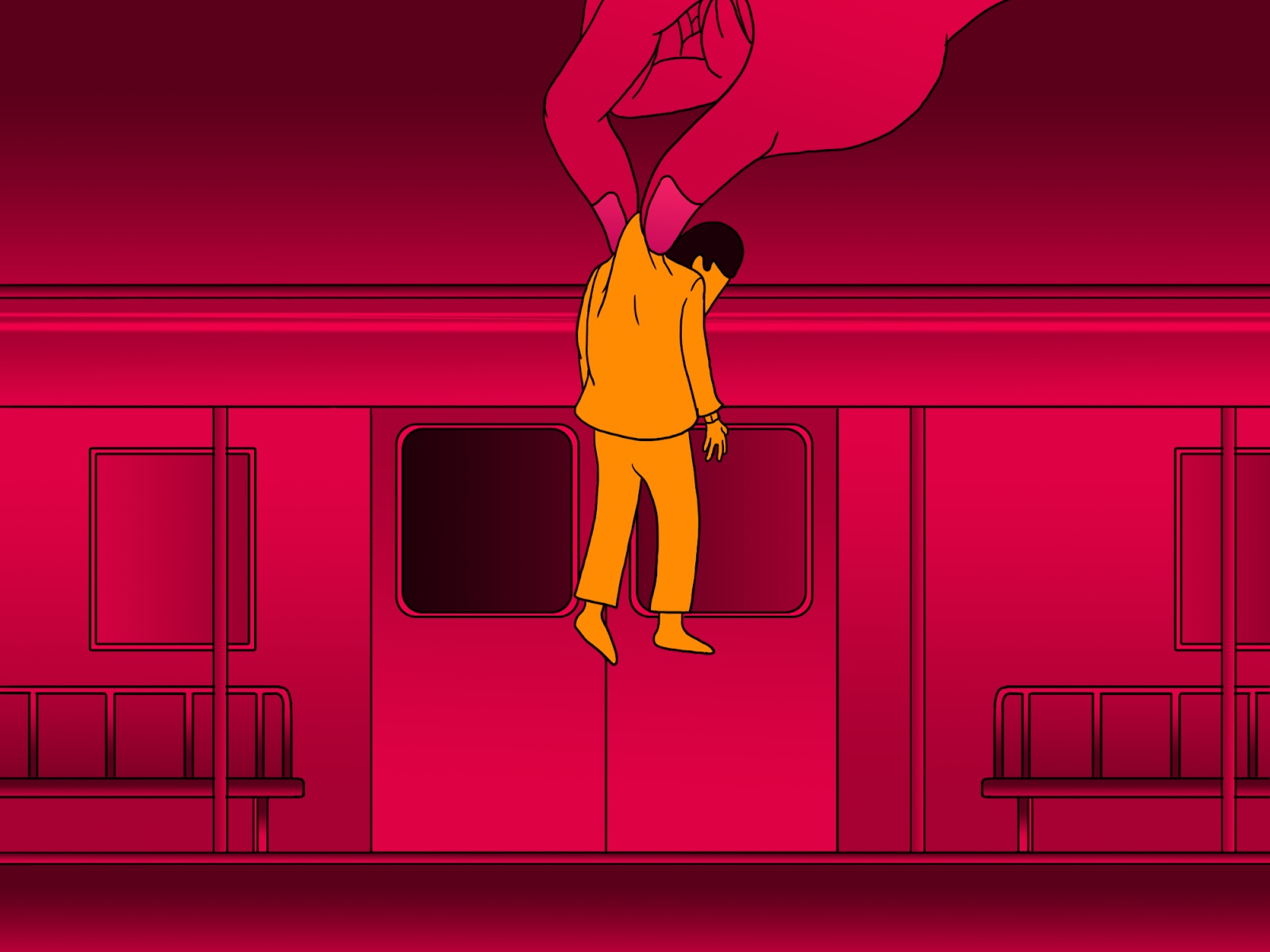BBC exposé about Japanese subway groping provokes discussion in China, then censorship
A recent BBC documentary briefly dominated Chinese social media — but then censors sprang into action, with state media weighing in.

A recent investigative documentary by the BBC has shed light on the online business of selling videos showing women in East Asia being sexually assaulted on public transport. One of the websites under scrutiny was revealed to be operated by a group of Chinese men based in Japan, but discussions about these findings were heavily censored on Chinese social media over the weekend, with state-run media describing the issue as exclusive to Japan and calling on Japanese authorities to take action.
Titled Catching a Pervert: Sexual Assault for Sale and produced by BBC Eye, the investigative unit of the British news organization, the documentary first aired last Thursday and is now available on YouTube with subtitles in multiple languages. The 50-minute program is the result of a year-long investigation into a specific genre of porn themed around chikan, a Japanese term referring to the act of public molestation.
China news, weekly.
Sign up for The China Project’s weekly newsletter, our free roundup of the most important China stories.
In a BBC article published on Friday complementing the documentary, such behavior is referred to as an “epidemic” in Japan, where “chikan perpetrators typically take advantage of crowds, and the victims’ fear of causing a scene.”
“Thousands of arrests are made every year for chikan offenses, but many more go undetected and unpunished,” the BBC reported. In some cases, “the attack is filmed and the videos are sold online.”
There is a common pattern in many of these videos, which are listed on a slew of websites for sale, according to the BBC. They usually start with a man secretly filming a woman from behind and following her onto a train. “Seconds later, he sexually abuses her. The men act discreetly, and their victims can seem totally unaware.”
The main business investigated in the documentary is a Chinese-language website called Dǐngbùzhù 顶不住, literally meaning “I can’t hold it,” a popular destination for chikan videos filmed across East Asia, including Japan, South Korea, Taiwan, Hong Kong, and mainland China. Through Dingbuzhu, where users can pay as little as one dollar for some videos and make special requests for tailor-made abuse footage, BBC reporters then came across two other websites with the same type of content and a Telegram group where its 4,000 members regularly share tips on how to sexually abuse women.
The websites, as the BBC discovered, were run by Tāng Zhuórán 汤卓然, a 27-year-old Chinese man living in Tokyo. Hailed as an influential figure in the chikan-watching community, Tang went by the name Māomī 猫咪 on the internet and also routinely contributed to his own websites with videos uploaded under the alias of “Uncle Qi.” The BBC also unearthed two additional Chinese men serving as administrators for the websites, who both lived in Japan and played in the same metal band.
Before agreeing to meet an undercover journalist working on the documentary, Tang — who was ultra-cautious about hiding his real identity — repeatedly shot down the reporter’s request to talk in person. When Tang finally showed up at a karaoke bar, he was filmed admitting that he was the owner of Dingbuzhu and boasting about its 10,000 members, who, mostly Chinese men, collectively paid between 5,000 ($700) and 10,000 yuan ($1,400) for content daily.
When the reporter revealed their real identity and confronted Tang, he lashed out. The next day, Tang was seen catching a flight leaving Japan.
Meanwhile, in China
Although the exposed websites were operated in Japan, the BBC’s documentary quickly drew a great deal of attention on Chinese social media after its release, with commenters saying they were horrified by the facts that all of the three prominent figures connected to the websites were Chinese men.
However, on Friday, several social media hashtags spurred by the news were censored. In the following days, discussions about the program were restricted, with some Weibo users claiming that the platform reduced visibility of relevant posts on purpose.
“One post I read concerning the issue had garnered more than 2.2 million likes and was shared over 450,000 times before its creator was forced to set it private. But every woman I know is aware of this matter,” a Weibo user commented.
Meanwhile, the state-owned Global Times weighed in with an editorial titled “To avoid scrutiny from the Chinese authorities, he plans to become a Japanese citizen.” In the article, the author said that when he brought up the matter with Chinese police officers, he was told that “it was difficult to handle” because the website’s owners and servers were based outside of China.
“The biggest challenge with cases like this is that multiple countries are involved. Especially in cases where the website’s server is hidden overseas, it requires cross-national cooperation to properly investigate and punish the crime,” the author wrote.
At one point in the article, the writer emphasized that Tang was applying for Japanese citizenship in order to evade scrutiny from Chinese law enforcement agencies. “Given that many of these perpetrators abusing women chose to go to Japan and wanted to get Japanese citizenship to avoid getting arrested by Chinese police, maybe Japan should reflect on why this is the case,” he wrote in conclusion.
Ironically, in a notable contrast to Weibo’s suppression of posts about Tang, a different story concerning sexual harassment — one that put women in a negative light — was allowed to dominate the platform’s list of trending topics in the past few days. At the center of the controversy is a Chinese university student surnamed Zhang, who had to issue a public apology on Sunday after being doxxed and attacked online over a now-deleted viral Weibo post, in which she accused a migrant worker of upskirting on the subway without providing concrete evidence.
In response to calls for her expulsion, the young woman’s school, Sichuan University, told local media today that it was following up on the incident with police officers and would handle the matter in accordance with “legal procedures and regulations.”
The condemnation didn’t sit well with some spectators, who felt the backlash against Zhang was unfair and undeserved when compared with the (lack of) visibility of Tang’s story. Some also argued that Zhang’s fears were not entirely unfounded, given that subway perverts are a real problem in China.
“Living in a society like this, it’s not wrong to be a little sensitive,” a Weibo user wrote in defense of Zhang. Commenting on a Weibo video of the BBC documentary, which so far has racked up nearly 4 million views, another person wrote, ”No one in their right mind would criticize the student for overreacting after watching this and realizing what women have to deal with on a daily basis.”
“It’s not a matter of capability”
Groping, upskirting, and other forms of sexual harassment on public transit have long been an inescapable reality for female commuters in China, especially in the summertime and during rush hour. According to a 2017 poll conducted by state media, 53.5% of the female respondents — who accounted for 55.2% of the 2,023 people surveyed — said they had personally experienced sexual harassment on the metro or knew another woman who had. The survey also revealed that for safety reasons, female riders tend to walk away or remain silent when put in uncomfortable situations. In 2017, a woman in Beijing had her throat cut by a young man after she slapped him for groping her on a bus.
The reluctance to confront aggressors also stems from society’s tendency to engage in victim blaming. This has not only allowed perpetrators off the hook, but also led women to police one another with slut-shaming remarks for clothing considered too revealing.
In recent years, as public awareness of harassment has grown in the wake of the #MeToo movement, a growing number of Chinese women have become emboldened to speak out against inappropriate touching. The change was also brought about by the efforts of women’s groups, such as the state-run Beijing Women’s Federation, which ran an awareness campaign in parts of the capital’s subway system in 2018, with posters calling upon people to “not act like a silent lamb” or “an indifferent onlooker” if they see a passenger being groped.
There has been a shift in attitude among government officials, too. In 2017, in a bid to curb subway perverts, Guangzhou became the first Chinese city to introduce women-only metro carriages. In the summer of 2020, the Beijing government launched a special initiative involving squads of plainclothes officers at subway stations to look for molesters. The campaign made headlines after a senior figure with the China Banking and Insurance Regulatory Commission was caught groping a woman.
However, these efforts have not resulted in stricter that punish lewd acts on public transportation. One exception was in 2019, when a man in Shanghai was sentenced to six months in jail after being caught groping an adult woman and an underage girl on the subway, which made him the first person in China to be criminally punished for sexual assault on public transportation. But vast majority of offenders are able to get away with less-severe penalties like 15-day “administrative detentions.”
In light of the BBC’s exposé on Tang, many Chinese internet users wondered if he would ever face justice if he went back to China. “Many of his websites’ users are in China and he’s Chinese. If Chinese police really put their mind to it, they can definitely find those people and arrest them,” a Weibo user wrote. “It’s not a matter of capability. It’s a question about their willingness.”






